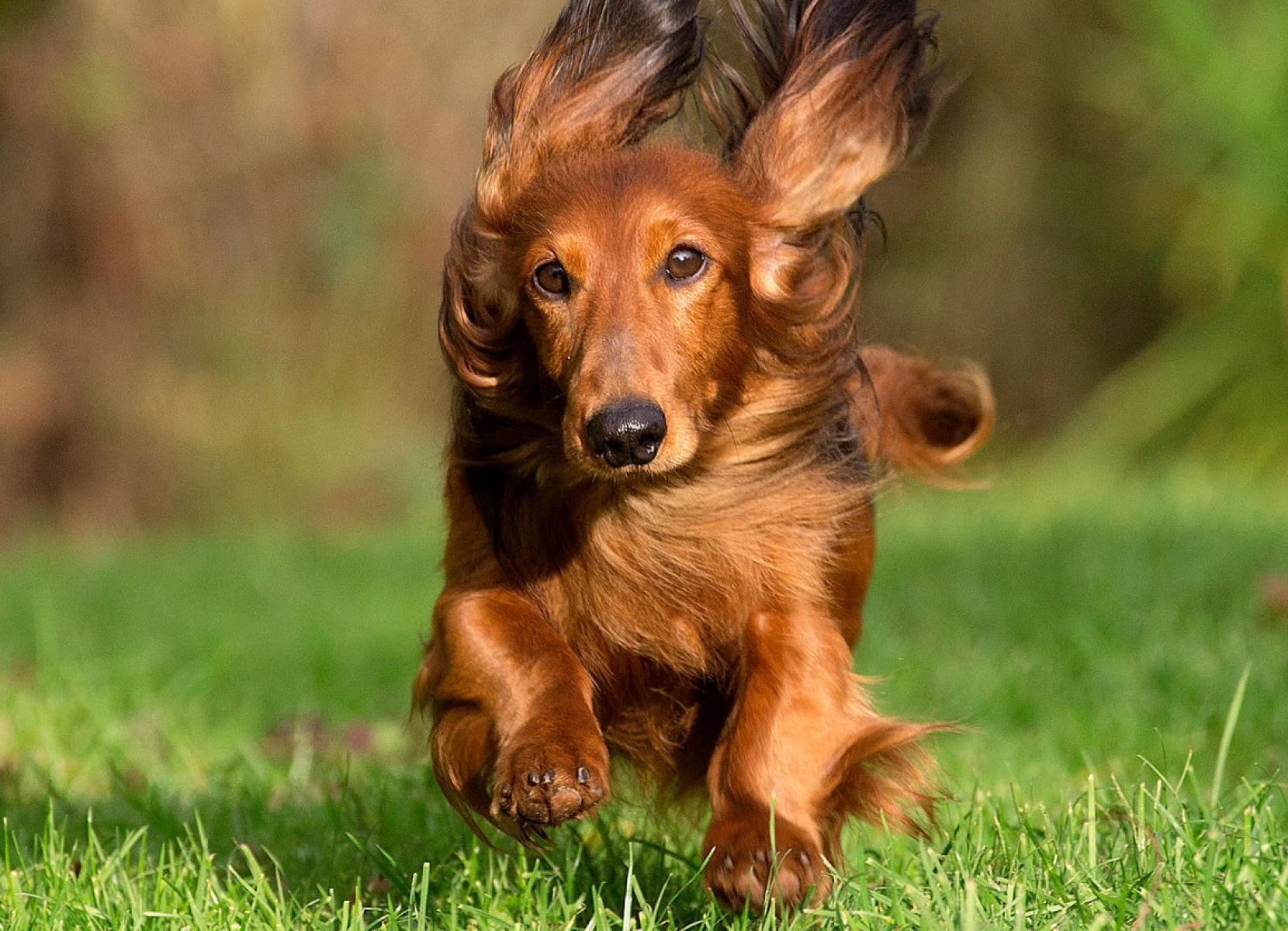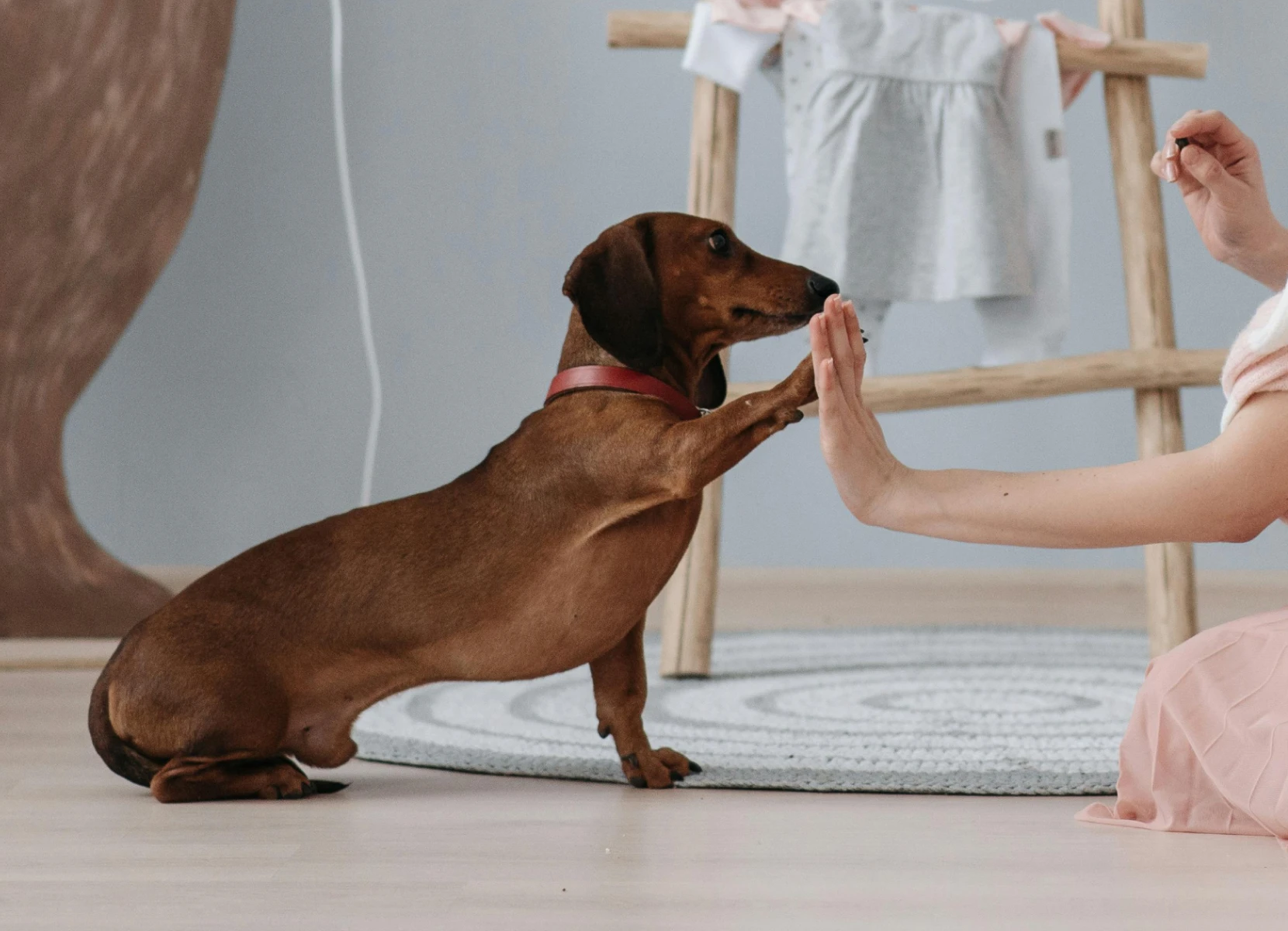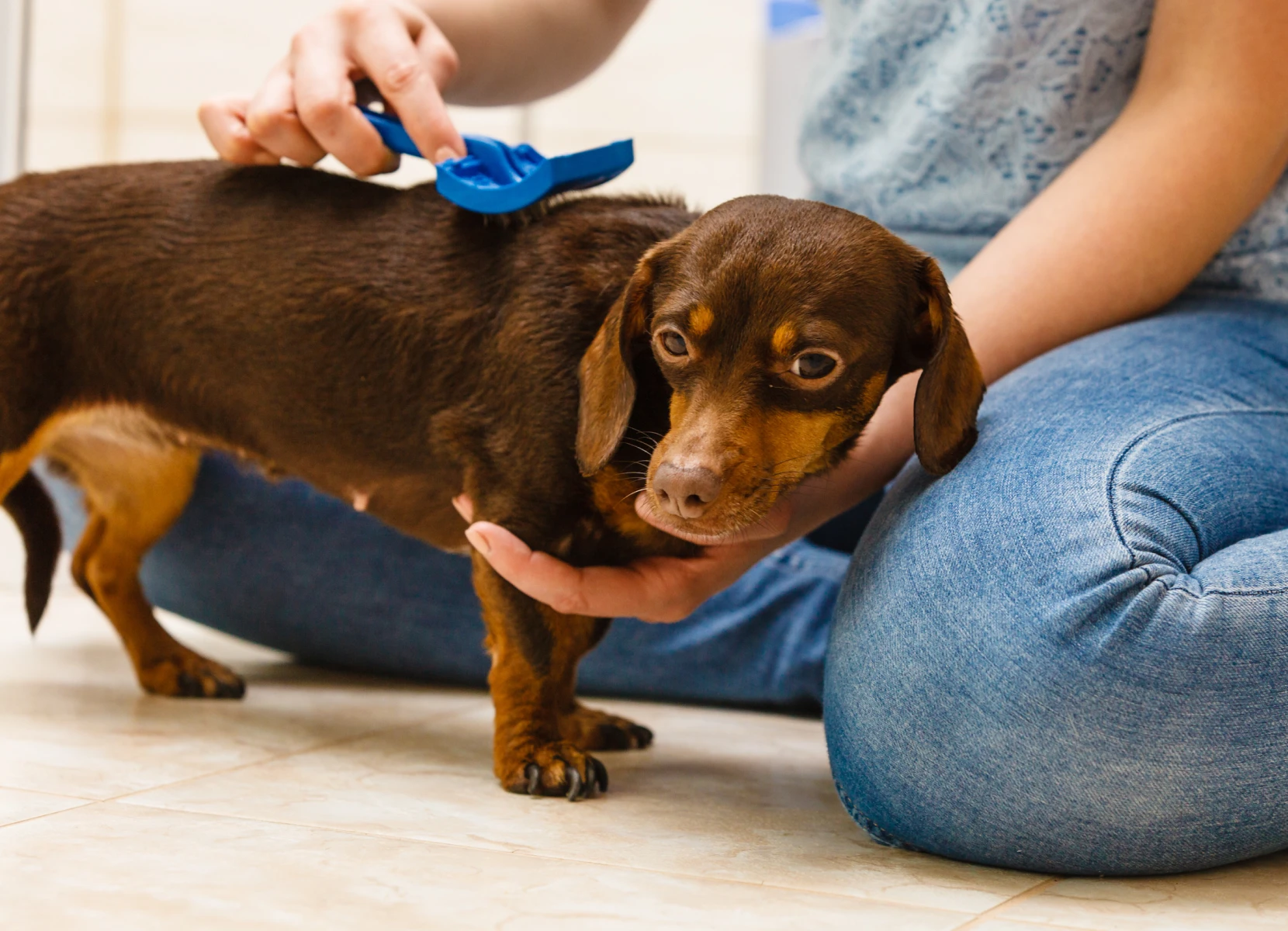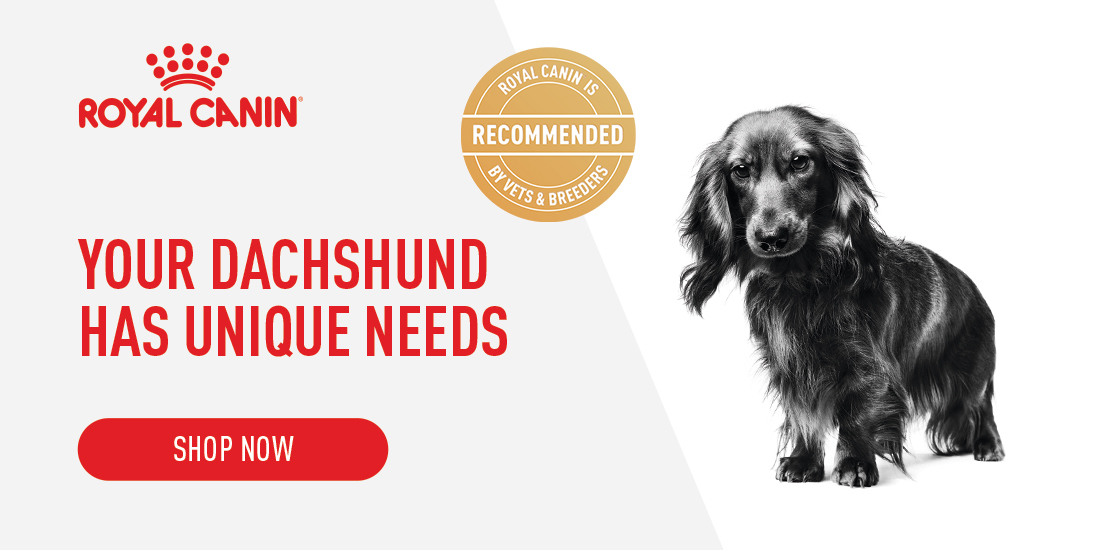Dog Breed
Dachshund
Freindliness
Exercise Needs
Health Issues
Barking Tendencies
Grooming Needs
Shedding Level


Brave companion
There aren't many dogs in the dog kingdom more iconic than the Dachshund. These friendly, feisty dogs are bold and brave, happy to take on the world (and other dogs) and to act as a faithful protector to their people.
Sure, this means they can be a little noisy and quick to stand up for themselves against any percieved threat, including other animals and little humans. But they're loyal and affectionate to their people and want nothing more than a loving lap to curl in once their day's work is done.
Caring for your Dachshund
Nutrition
Choosing the right food
Every dog is unique. From the small, flat-faced Pug to the obesity-prone Labrador Retriever. ROYAL CANIN® Breed Health Nutrition is tailor-made to address the unique needs of pure breed dogs. These breed specific formulas benefit from the latest ROYAL CANIN® research on the selection of the best protein sources, unique nutrients and tailor-made kibbles.

Exercising your dog
Regular (that’s daily) exercise helps them stay fit, maintain a healthy weight and build strong muscles to support and protect their back.
Aim for 2 walks every day, up to a total of around 30 minutes. Keep the pace gentle and easy-going - these aren’t sprinting dogs! Add in some play time and training and that should be enough.
As social dogs, Dachshunds don’t respond well to being left alone, especially outside. If you leave them alone in your garden, you can expect plenty of barking, chasing and digging. Lots of daily mental and physical stimulation gives them a healthy outlet for these instincts.

Training your Dachshund
Dachshunds are smart pups. But they’re also independent and somewhat stubborn so training can be a challenge. However, these loving, affectionate dogs respond well to positive reinforcement and patient, consistent training. Keep training sessions short.
Use their favourite treats and toys, plus praise, to keep them engaged. Games like hide-and-seek with treats will give them a good outlet for their energy and smarts.
Dachshunds need proper socialisation from when they’re a puppy. Early socialisation helps them gain confidence around new people and pups and in new situations. Dachshunds should always be supervised around young children. Dachshunds can get along ok with other dogs in their home but they prefer to be the only one.

Your dog's health
Dachshunds have a long and healthy life expectancy of up to 16 years but there are some breed-specific issues it’s worth keeping an eye on.
Brush their teeth everyday to keep dental disease at bay and stop the buildup of plaque and tartar.
Intense exercise, like jumping or rough play, can damage a Dachshund, especially their back. Ensure your Dachshund doesn't run up and down stairs or jump on or off furniture.
Health Issues to watch out for:
Back Problems
Epilepsy
Bloat
Eye Issues

Grooming your dog
A Dachshund’s grooming needs depend on their coat type. Short, smooth coats don’t need more than a quick wipe or a weekly brush to loosen any dirt and dead hair. Short, wiry coats will need to be plucked or hand-stripped (where you pull away the dead hair) a few times a year. In between this, they’ll need a brush or comb once or twice a week, plus their beard and eyebrows trimmed as needed. Longer, wavy coats will need more regular brushing - aim for a few times every week.
Because Dachshunds are so low to the ground, their tummies can pick up dirt and debris. You may need to brush this area every few days.
Baths can be kept to a minimum - just a few times a year.
Check your Dachshund’s ears, gently clean them, and watch for signs of infection. Trim their nails monthly
Key characteristics of Dachshunds


Dachshund FAQs
Considering a Dachshund or already living with one? You’re in the right place. Below are answers to some of the most common questions about this bold little breed, including training advice, barking behaviour, and home life compatibility.
Yes, Dachshunds adapt well to apartment living thanks to their small size and moderate energy. Just be mindful of their barking tendencies, and ensure they get daily walks and mental stimulation to prevent boredom.
Dachshunds form strong bonds with their people and may experience separation anxiety if left alone too long. Leaving enrichment toys or arranging a pet sitter can help reduce stress if you're out for extended hours.
Dachshunds can get along with children and other pets, especially if raised together. However, due to their bold personality and strong prey drive, supervision and early socialisation are key.
Yes, Dachshunds are known to be vocal. They make excellent watchdogs but may bark excessively if not properly trained. Early training and enrichment can help curb unwanted barking habits.
The most common health concern in Dachshunds is intervertebral disc disease (IVDD), due to their long spine. Weight management, avoiding jumping, and supportive bedding can help reduce the risk.
This FAQ covers the most important facts about Golden Retrievers. If you're considering adopting one or already have a Golden, their active lifestyle, loyal temperament, and charming personality are bound to enrich your life!




